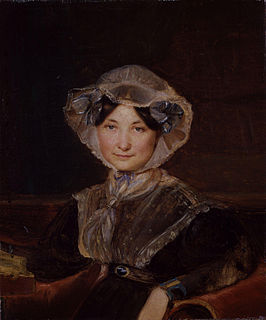A Quote by Frances Trollope
I never saw any people who appeared to live so much without amusement as the Cincinnatians.... Were it not for the churches,... Ithink there might be a general bonfire of best bonnets, for I never could discover any other use for them.
Related Quotes
What James Madison and the other men of his generation had in mind when they wrote the First Amendment was that there should be no official relationship of any character between government and any church or many churches, and no levying of taxes for the support of any church, or many churches, or all churches, or any institution conducted by any of them.
When we first sat down and talked about how much of the show we were going to do based on the movie, there are certainly things you can see right away, but we wanted to make sure that the audience who maybe never saw the movie or has maybe never seen any of the Marvel characters before - and I know there's three of them left on the planet - could have someone that could be their eyes and take them in.
The women all had big minds because they were big animals, but they didn't use them for this reason: unusual ideas could make enemies and the women, if they were going to achieve any sort of comfort and safety, needed all the friends they could get. So, in the interest of survival they trained themselves to be agreeing machines. All their minds had to do was to discover what other people were thinking and then they thought it too.
When anyone asks me how I can best describe my experiences of nearly forty years at sea, I merely say uneventful. I have never been in an accident of any sort worth speaking about....I never saw a wreck and have never been wrecked, nor was I ever in any predicament that threatened to end in disaster of any sort.
In a general way, the literature of the twentieth century is essentially psychological; and psychology consists of describing states of the soul by displaying them all on the same plane, without any discrimination of value, as though good and evil were external to them, as though the effort toward the good could be absent at any moment from the thought of any man.
The Bagginses had lived in the neighbourhood of The Hill for time out of mind, and people considered them very respectable, not only because most of them were rich, but also because they never had any adventures or did anything unexpected: you could tell what a Baggins would say on any question without the bother of asking him.
I have travelled a good deal in Concord; and everywhere, in shops, and offices, and fields, the inhabitants have appeared to me tobe doing penance in a thousand remarkable ways.... The twelve labors of Hercules were trifling in comparison with those which my neighbors have undertaken; for they were only twelve, and had an end; but I could never see that these men slew or captured any monster or finished any labor.
I worked with creative people who were very demanding of me, and they helped me reach performances that I never could have gotten on my own without being pushed and having trust in them. And so I know the best way to get the best performance of an actor, and that's not to coddle them or to baby them. It's to help them; it's to push them.
I could not sit seriously down to write a serious Romance under any other motive than to save my life, & if it were indispensable for me to keep it up & never relax into laughing at myself or other people, I am sure I should be hung before I had finished the first chapter. No - I must keep my own style & go on in my own way; and though I may never succeed again in that, I am convinced that I should totally fail in any other.
Grownups! Everyone remembers them. How strange and even sad it is that we never became what they were: beings noble, infallible, and free. We never became them. One of the things we discover as we live is that we never become anything different from what we are. We are no less ourselves at forty than we were at four, and because of this we know grownups as Grownups only once in life: during our own childhood. We never meet them in our lives again, and we will miss them always.
It's not just that humiliating people, of any age, is a nasty and disrespectful way of treating them. It's that humiliation, like other forms of punishment, is counterproducti ve. 'Doing to' strategies - as opposed to those that might be described as 'working with' - can never achieve any result beyond temporary compliance, and it does so at a disturbing cost.






































